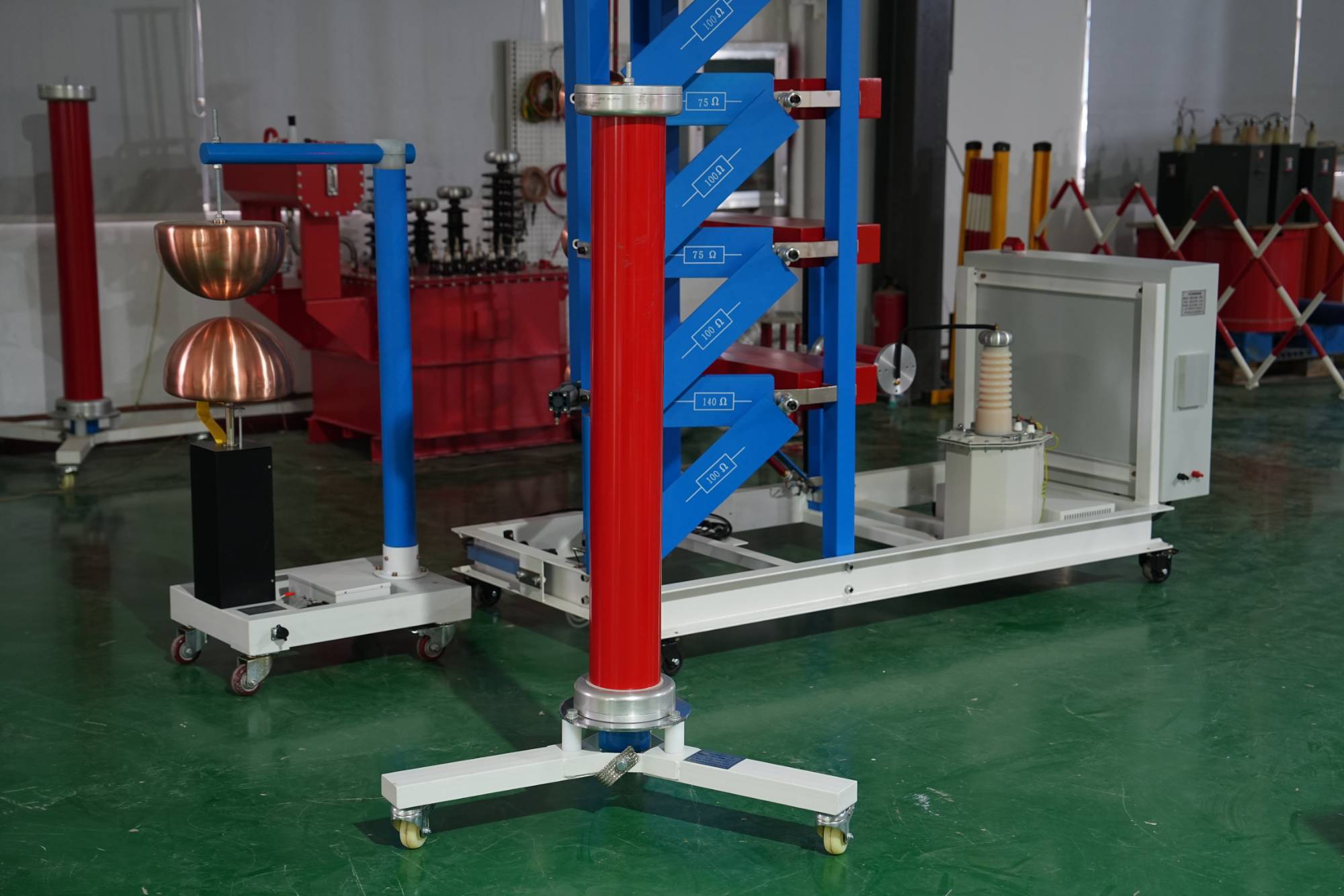Olightning impulse voltage generator under UHV power can help many power workers conduct various power tests more conveniently.
Lightning impulse test is a test used to evaluate the tolerance of electrical equipment and systems under lightning or surge conditions. Due to lightning being one of the strongest electrical phenomena in nature, its high voltage, high current, and rapidly rising electromagnetic waves can cause serious damage to electrical equipment. Therefore, conducting lightning impulse tests is crucial to ensure the safety and reliability of equipment.
The basic principle of lightning impulse
Lightning impulse is an instantaneous high voltage phenomenon caused by lightning discharge. When lightning strikes, current flows rapidly in the air, forming strong electric and magnetic fields. This process generates voltages of up to millions of volts, instantly releasing enormous amounts of energy. When this voltage is applied to electrical equipment, it may cause insulation material breakdown, component damage, and even fire or explosion inside the equipment. Therefore, understanding the characteristics and effects of lightning impulse is the basis for conducting lightning impulse tests.
The purpose of lightning impulse test
The main purpose of lightning impulse test is to evaluate the performance and anti-interference ability of electrical equipment under lightning impulse. By simulating the impact of lightning, the working state of the testing equipment under extreme conditions is tested to ensure its reliability in real environments.
Specifically, the functions of lightning impulse testing include:
1. Verify the design and materials of the equipment: Through testing, it can be verified whether the materials and structures selected during the design phase of the equipment can withstand the impact of lightning strikes. This is crucial for improving the safety and durability of the equipment.
2. Improve the anti-interference ability of the system: Lightning impulse testing can help identify the weak points of equipment under lightning impulse, thereby improving the design and enhancing the anti-interference ability of the system. This is of great significance for protecting equipment from accidental damage, reducing downtime, and maintenance costs.
3. Ensure compliance with standards and regulatory requirements: Many countries and regions have clear standards and regulatory requirements for lightning protection of electrical equipment. By conducting lightning impulse tests, it can be ensured that the equipment meets these requirements, thereby smoothly passing certification and inspection.
4. Ensuring personal safety: Lightning strikes not only pose a threat to equipment, but may also pose a danger to operators and the surrounding environment. By conducting lightning impulse tests, safety hazards caused by lightning can be effectively reduced, ensuring personal safety.




















